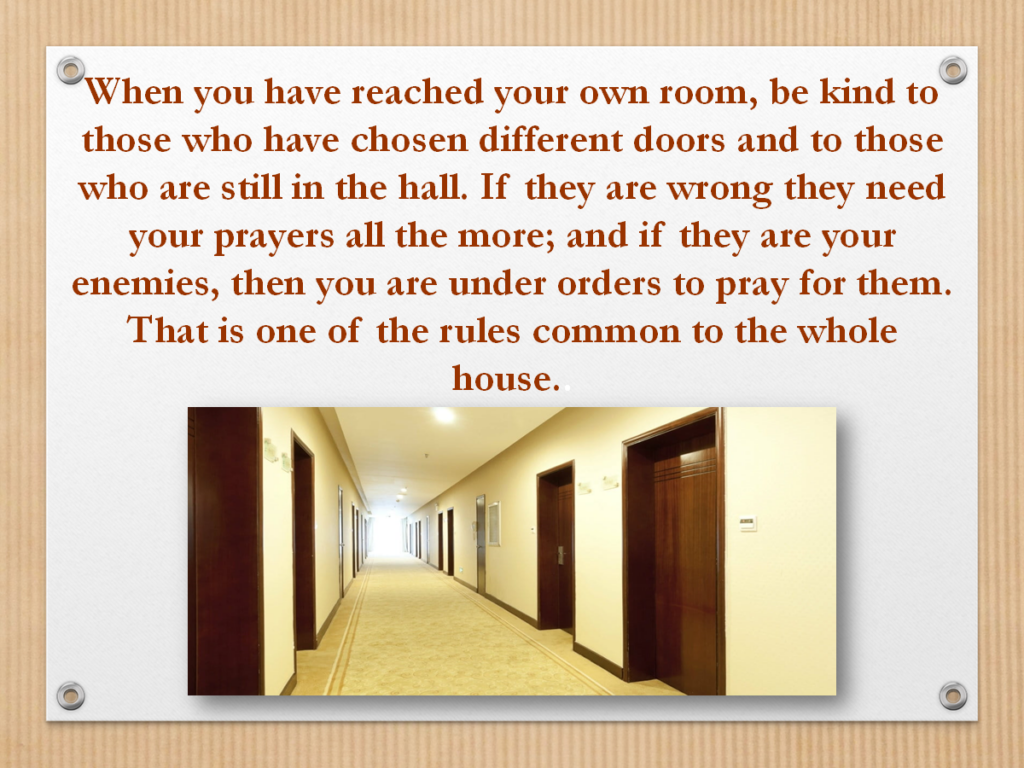I’ve finished three weeks of my university course on C. S. Lewis and enjoyed every minute of it. We began by going through his autobiography, Surprised by Joy, which I can tell was well received by the students.
We have now begun key chapters in Mere Christianity and carefully analyzed and discussed Books I and II, which provide the basis for building an apologetic for the faith. As I read my students’ reading reports on the assigned chapters, I see that they are getting a lot out of it. It helps, of course, that this is an upper-level course for those who already have an interest in the subject.
Rather than jump right into Book I, it was important to look together at the concluding words of Lewis’s preface, as it sets the tone and goal for the entire work. Lewis wants his readers to know that he is not directing anyone toward a particular denomination of Christians. That is not his aim. Instead, he writes, “Ever since I became a Christian I have thought that the best, perhaps the only, service I could do for my unbelieving neighbours was to explain and defend the belief that has been common to nearly all Christians at all times.”
Thus, the title Mere Christianity—not “mere” as in watered down, but as the consensus—the essentials of the faith—that Christians throughout the ages have agreed upon. He likens the church universal to a hallway in a home. As he explains,
Getting someone into the hall is what he hopes will happen to those who read and seriously consider his words. But he does encourage those who have entered the hallway to check out the various doors.
Note that there are rules that all Christians must follow, even if one has not yet chosen a particular door/denomination. There are guidelines for making a decision respecting one’s choice of a door.
Yet when one does make the decision, it is imperative to remember this crucial commandment:
True devotees of Christ—those mere Christians—must set aside pride regarding their own decision and realize that those who have chosen different doors are still their brothers and sisters. This is the spirit in which Lewis writes Mere Christianity, and it is why this volume has become groundbreaking for so many as they have sought to grasp the essentials of the faith.
We will complete our reading of this book next week and move on to one of Lewis’s most significant essays, “Learning in War-time,” to be followed by The Screwtape Letters. What an honor to be allowed to work with students in this way and to help solidify their faith.





